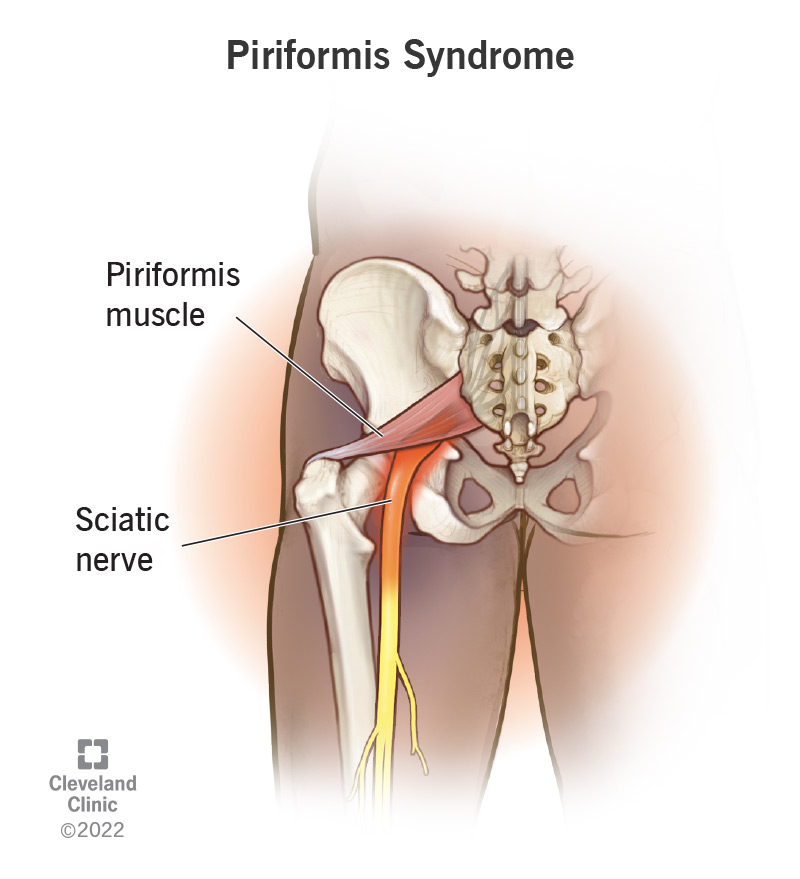
Piriformis Syndrome
If you have chronic pain in the butt radiating to your legs and finding it difficult to obtain relief. You may have piriformis syndrome.
Overview
Piriformis syndrome is a rare neuromuscular disorder caused by the compression of the sciatic nerve by the piriformis muscle. The piriformis muscle is a flat band-like muscle located near the top of the hip joint in the buttocks. The piriformis muscle is responsible for several hip and leg functions including: rotating the hips outward and inward, moving the hip bone away from and to the side of your body, and assisting with walking by stabilizing the hip joint.
Causes
The sciatic nerve usually runs directly beneath the piriformis before extending down the back of the thigh. However, for some people, the sciatic nerve passes directly through the piriformis, predisposing them to piriformis syndrome, also known as piriformis sciatica (as opposed to true or discogenic sciatica). Overuse or trauma to the piriformis can cause it to entrap the sciatic nerve, resulting in piriformis syndrome. Piriformis syndrome is most commonly caused by sports or movements that repeatedly stress the piriformis muscle, such as running and lunging.
Symptoms
People suffering from Piriformis Syndrome can develop a wide range of symptoms that can appear periodically or persistently. Patients generally describe their symptoms as acute tenderness or pain in the buttocks muscle tissue, which may extend down the back of the leg through the hamstring muscles and, in some cases, to the muscles of the calf. The typical manifestation of Piriformis syndrome,
• Is an aching sensation or discomfort in the buttocks or hip area.
• Back pain in the thigh calf and foot.
• Walking upstairs or on inclines causes pain.
• Pain during bowel motions is possible.
• Increased discomfort after prolonged sitting.
• Restricted range of motion in the hip joint. The symptoms often worsen after extended sitting standing, squatting walking or running, and climbing stairs. When patients lie on their back, the pain from Piriformis Syndrome often subsides.
Ayurvedic View
Mamsa medo gata vata- due to following nidana (causes) like ati vyayama (overexertion), rata prayoga (excess traveling), ratri jagarana (night awakening), ruksha (dry, less nutritious food) etc, all leads to vata dosha prakopa (aggravation), which settles in mamsa dhatu (muscle tissues), leading to pain, numbness etc, this is piriformis syndrome. Ayurveda's approach is to bring dosha back to prakruta awastha (balanced state), nourish the body, reduce the symptoms and rehabilitate by correcting the cause of affected part by ayurvedic panchakarma treatment.
Ayurvedic Treatments
Snehanam Bashpa Swedanam Lepanam Pichu Virechanam Vasti Navara pinda swedanam Agni karma Abhyangam
Naturopathy Treatments
Arm &foot bath Enema Steam bath Packs Manipulative therapy Diet therapy Clinical yoga Physiotherapy Electrotherapy Exercise therapy
Piriformis Syndrome
Treatment for
DISCLAIMER: Listed treatment details are only for information purposes. Treatments and duration may vary depending on numerous factors. Treatments for your condition may not be limited to this list.






















